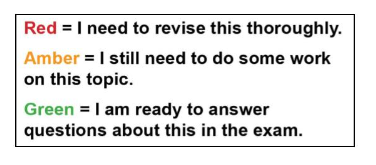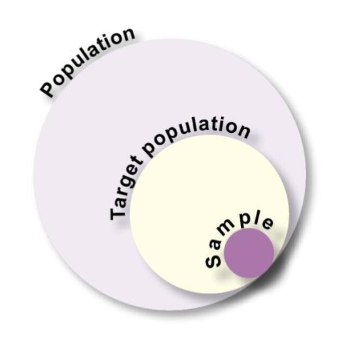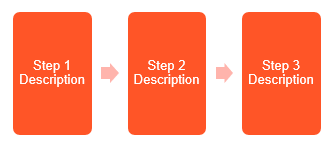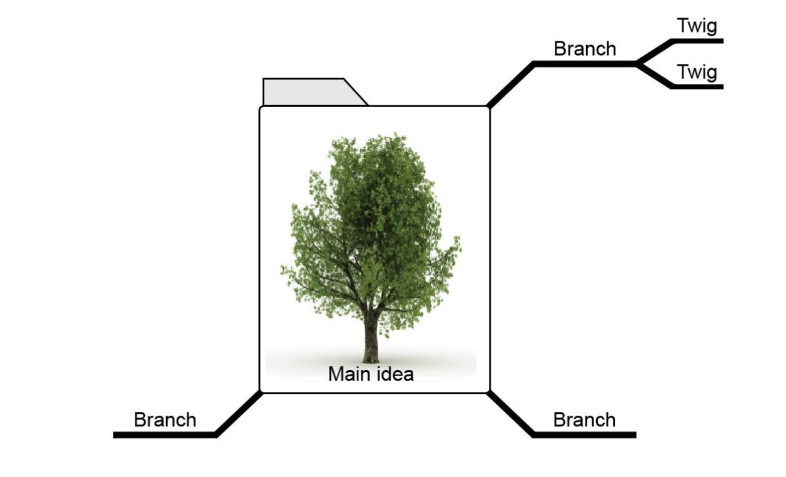A student guide to revision – resources and activities
04 April 2024
Nicola Heath, Psychology Subject Advisor

In this blog I’ll suggest a range of resources and activities for you to use to prepare for the exams and assessments. I hope you will find these useful, but remember, it’s not an exhaustive list. There are many ways that you can revise and, depending on your preferred learning style, some activities may be more suitable than others.
My biggest piece of advice for you is to try to use a range of revision methods and techniques and use them throughout the course as ongoing revision, not waiting until the exam period.
Key resources to have at your fingertips
Class notes
Your class notes are an important resource for you to refer to key terms and important details about studies. You may also want to look at your class notes to see areas you have not explained as well and focus on these sections to improve your understanding. Beyond this, using the feedback on your work that you’ve received from teachers will enable you to focus on what you need to do to improve your written responses and explanations in particular topics.
Textbooks
Textbooks can help you to understand the level of detail required for core studies, theories and areas, so you know how much detail you need to include in your responses to exam style questions. Textbooks also explain key evaluation issues to you and help to remind you of why evaluation issues are relevant to specific studies and areas. Once you are happy with the content you can use the revision questions contained within the chapters.
The course specification
The course specifications detail everything you need to know for the assessment and how the exams will be structured. It is useful to look at this often and check you understand everything you need. Some of the information is for teachers, so focus on the content sections and if you want to print pages, choose specific sections and not the entire document.
Quizlet
Quizlet is a free tool you can use through a web browser or a downloaded app. It’s a great tool as you can not only create your own quizzes but use those made by other students and their teachers. Through the website you can use flashcards, revision games, tests and matching games to help you recall the correct information in the exam and improve your use of key terms.
YouTube
There are lots of videos on YouTube to help you understand specific aspects of the course you are studying or examination skills. Be careful to look at trusted accounts and videos that are for your current OCR course. Many students find the visual nature of YouTube an excellent way to revise content.
Suggested revision activities
1. Set the scene!
Aim: To reflect on your learning so far and what you need to focus on
The first task is to understand what you need to know for the exam and how you can break this down into chunks or subtopics. For example, you could use the specification, existing lists of the topics covered or a textbook as a checklist and then to summarise the key elements you need to know and ensure you both understand and remember.
Once you have your checklist of topics you can RAG them! This means to rate how well you understand each concept or study.

Set yourself regular reminders to revisit the checklist to check how far you have to go before the exam and prioritise key areas.
2. Create a timetable
Aim: To organise your time effectively so you can revise efficiently
Use the advice in the previous section to map out when you are going to revisit each topic, setting yourself clear goals on what you are going to cover. You can design your timetables so that you have daily or weekly tasks. When completing your timetable:
- Record when your exams are.
- Record when your lessons and other ‘busy’ times are.
- Plan to suit your learning habits and preferred time to work – perhaps blocking out certain times of the day.
- Set yourself time limits – possibly 20-30 minute chunks.
- Check your plans over visually – are they realistic?
Chunking your learning in this way makes it feel much more manageable and motivates you to revise little and often.
3. Get to know what the examiners expect
Aim: To understand exam technique and what the examiners are looking for.
By reading and gaining an understanding of the mark schemes on the OCR website for the sample assessment material, you will be more informed about the skills needed to answer the exam questions appropriately.
Marking your own work using the mark scheme is also useful as it helps you to understand what the examiners expect and if you are currently answering the questions as you should. Once you have marked your answers you could see how to improve them using the mark scheme.
4. Flashcards
Aim: To recall facts and key information from each study.
Flashcards allow you to create cards with questions and answers on specific facts such as sample sizes or strengths and weaknesses of experimental design. The first step is making the cards: you use PowerPoint and simply print them off or use a dedicated app such as AnkiApp or Quizlet.

Once you have made your flashcards you can use them to test yourself and your peers to see how many you get correct. You should use them regularly to ensure your memory recall of the key facts is strong.
To make sure you always include the important parts of the definition you could put these in bold like the example below.
5. Diagrams
Aim: To represent information from key concepts in your course.
A diagram representing information in a visual way can be really useful to help you see the bigger picture.

You could even annotate diagrams with the key features and terms you need to know. If you are revising a sequence of steps it can be helpful to have these visually as a flowchart like the one below.

6. Mind maps
Aim: To organise the information you need to learn for each topic visually, acting as a trigger for memory recall of certain topics.
The idea of a memory map is to put your main topic in the centre and create branches off it as the associated ideas or concepts within the topic.

Can you create a mind map of the main topics in your course, then add key terms, concepts and examples?
7. Practise exam questions
Aim: To improve your exam technique and develop your ability to explain answers.
To prepare for the exams, you ned to make sure you are able to tackle a range of questions from different topics and respond appropriately to the command words in the question itself. Try completing exam style questions from the OCR website, your textbook or that your teacher has given you using the rule of one minute per mark. Check your answer back against your notes or mark it using the mark scheme.
8. Quizzes
Aim: To test your knowledge and improve your memory recall in terms of both accuracy and speed.
You may already do quizzes in lessons to test your recall of facts, figures, definitions and evaluation points and this is a useful way of testing your knowledge. You can create quizzes yourself or use existing ones on free websites/ apps such as Quizlet. You can download a range of apps onto your phone or other devices so you can do a quiz when you have a spare 10 minutes at college or on the bus!
9. Group activities
Aim: To challenge yourself and others to improve the quality of your answers.
Working in groups can help you to improve your knowledge and understanding in a fun way and motivate you and your peers. Try some of the following activities:
- Make a set of open question cards such as ‘What makes psychology a science?’ that you can all answer individually and then discuss your responses. Once you have discussed your responses you can annotate your own with further detail to improve the level of response you can give in the exam.
- Pair up with a peer you know is really good at a particular topic and teach each other your area of expertise. Not only will you be helping a friend but it is shown in research that by explaining a concept to others you actually improve your own ability to explain it.
- Challenge a friend to answer as many closed question flashcards, such as ‘what is an open question?’ in 3 minutes and keep a tally of the scores. You can even use apps discussed above to do this.
10. Improving marked work
Aim: To understand the demands of the exam and what the examiners will be looking for in your answer.
As part of your exam preparation you need to put your learning into practice and gear up for what the exam will actually want from you. Awareness of how the knowledge and understanding you have needs to be expressed in the exam is vital and this strategy is reported as highly effective by both students and research.
Once you have some feedback from your teachers, take a different coloured pen and annotate your answer with improvements to their comments. Once you have done this it is useful to attempt the question again at a later time to see if you have adjusted your exam technique and understanding following your improvements.
Stay connected
Share your thoughts in the comments below. If you have any questions, you can email us at support@ocr.org.uk, call us on 01223 553998 or message us on X (formerly Twitter) @ocrexams. You can also sign up to subject updates to keep up-to-date with the latest news, updates and resources.
About the author
Nicola joined OCR in 2022 as the Subject Advisor for Psychology. Prior to joining OCR, she taught psychology for over 10 years and has had various other responsibilities in that time, including being Head of Year and Subject Leader for PSHE. Nicola has a personal interest in mental health and wellbeing and enjoys reading, baking and spending time outdoors to relax.